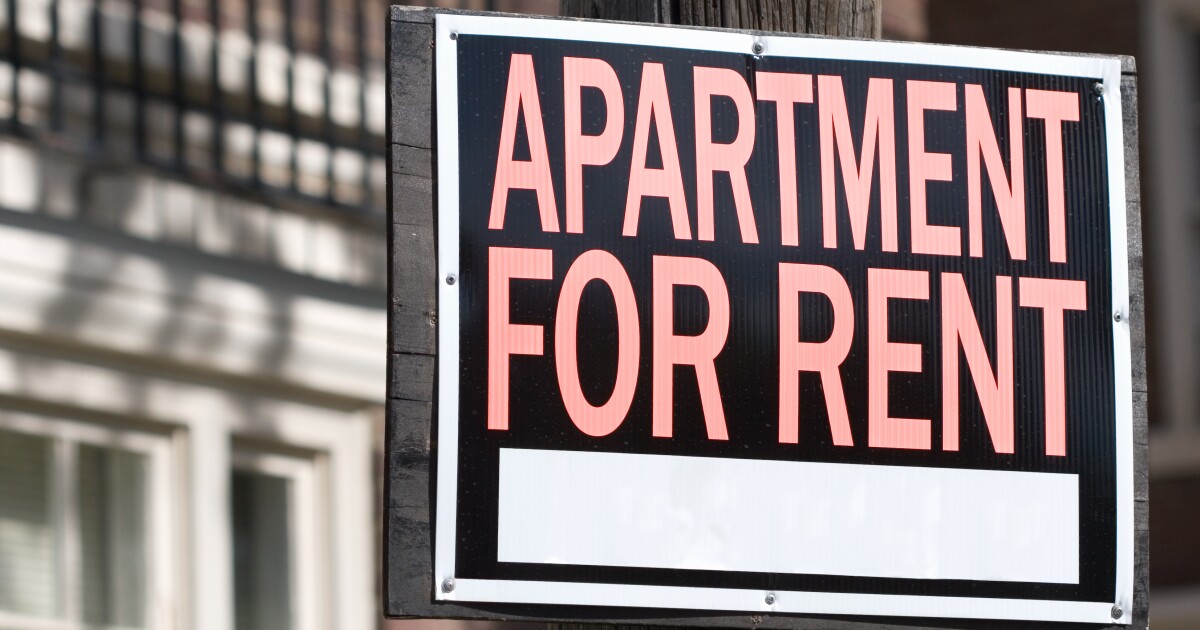
President Joe Biden proposed a nationwide cap on rent increases in an ongoing effort to lower
The president called on Congress to pass legislation requiring corporate landlords to cap annual
Some corporate landlords have raised rents in response to the
The cap would be in place this year once passed and for the next two years. It would set restrictions on landlords holding more than 50 units, which covers more than 20 million units nationwide, but includes an exception for new construction and substantial renovation.
If passed, the ultimatum would make it harder for landlords who raise rent by more than 5% to write off expenses related to costs arising from extraneous things like wear and tear on their buildings, according to LendingTree senior economist Jacob Channel.
Channel said that while the plan could help rein in rising rent costs, it won't be a cure-all. It would only impact about half of the rental market, he said, and landlords are still technically free to raise rates by however much they want in accordance with local laws, assuming they don't care about tax breaks.
The president also announced a plan to make more affordable housing available by repurposing existing public land. A statement from the Biden administration said the White House aims to build more housing that is affordable for "working families" and is also climate resilient, which will in turn bring down energy costs.
The Biden-Harris Housing Plan entails the construction of two million homes and $10,000 in mortgage relief for millions of Americans. The plan intends to make homeownership more accessible as many Americans hesitate to enter the housing market
The Biden administration's statement asserted that more units are under construction now than at any point in the last 50 years and the rate of new housing starts is up 17% compared to the Trump administration. The president is calling on smaller government and public entities and to consider whether land they hold would be suitable for the creation of affordable housing.
"While this could help spur construction and bring housing prices down, more targeted building efforts in major metropolitan areas that include ending overly restrictive zoning policies and make it easier for cities to build "up" instead of "out" would probably be of more help," Channel said.
The statement blamed Republicans in Congress for blocking the administration's housing efforts as they have attempted to cut rental assistance and programs that build more homes and lower mortgage costs.
"While Republicans side with corporate landlords that are raising rents, President Biden is cracking down on price gouging and building more homes to lower rents and put homeownership in reach for working families," the statement said.
The statement said the president believes this combination of anti-price gouging policies and support for building more affordable housing balances the needs of tenants without limiting incentives for more supply.
The proposal was announced during a tumultuous re-election campaign for President Biden as many Democrats have publicly doubted his run for a second term.
The
A
The Mortgage Bankers Association released a statement yesterday ahead of the president's announcement condemning the Biden-Harris Housing Plan and chalking it up to a reelection effort.
"Increasing the supply of affordable rental housing nationwide – not politically-motivated and self-defeating rent control proposals floated during election campaigns – is the best way to alleviate affordability constraints for renters," said MBA President and CEO Bob Broeksmit.
Broeksmit asserted that the Biden-Harris Housing Plan, if passed, would not be an effective solution and would result in unintended harm to renters.
"There are endless examples in localities in America and around the world that prove that rent control is a counter-productive policy idea that ultimately harms renters by distorting market pricing, discouraging new construction, and degrading the quality of rental housing," said Broeksmit. "While the odds are stacked against this proposal ever passing Congress, a federal rent control law would be catastrophic to renters and our nation's rental housing market."
An increasing number of state and local governments have taken measures to create more affordable housing for working-class renters, instituting various
He said the MBA is working with the Biden administration on "common sense" solutions to achieve common goals: increasing housing supply, lowering costs for renters and improving multifamily lending programs.
An example, Broeksmit said, would be for the Senate to approve the House measure from earlier this year that enhances the
The statement comes after the FHFA recently announced
"Unfortunately, regardless of how helpful the Biden administration's proposals might be, most are unlikely to come to fruition without congressional approval," Channel said. "[This] includes the administration's latest "rent cap" proposal. Given the divided nature of Congress, meaningful housing legislation doesn't appear likely to pass anytime soon."



